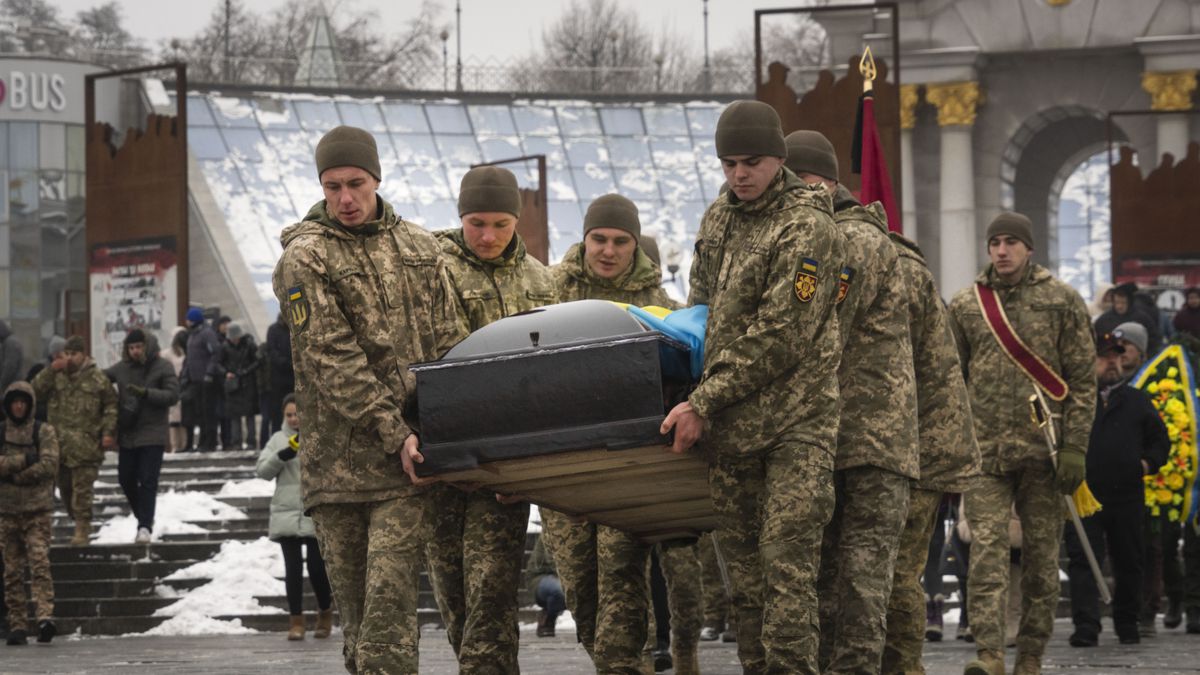Feb. 24 will mark the one-year anniversary of Russia’s full-scale invasion of Ukraine. Since the war began, the United Nations has verified more than 6,900 deaths of Ukrainian civilians. Over 7.9 million Ukrainian refugees are recorded across Europe. Ramifications from the Russian war dominate international politics and challenge existing international organizations. There is tragically no end in sight to the violence and suffering being inflicted on the Ukrainian people by the regime of Russian President Vladimir Putin. Yet, rather than succumb to despair, there has been movement on the global, national and local levels to begin the process of crafting laws and structures to generate avenues for future justice and hope for the victims of aggressive war.
Global Level
The Treaty on the Prevention and Punishment of Crimes against Humanity
To the dismay of China and Russia, a coalition of countries led by Mexico initiated a process in October to craft a new U.N. convention on crimes against humanity. To legal scholars and human rights activists, the current lack of such a treaty represents a gapping weakness in international law. The treaty would create a legal framework for countries to bring justice to perpetrators of crimes against humanity wherever they occur.
International law currently addresses genocide, torture, war crimes, enforced disappearances and apartheid. But crimes such as murder, enslavement, rape, unjust imprisonment and others are not covered in these treaties. Prosecution for these atrocities is thus much more difficult without a new legal instrument. Support for Mexico’s initiative to create such a treaty grew from the initial eight co-sponsors (Bangladesh, Costa Rica, Colombia, Gambia, Mexico, the U.S, the U.K. and South Korea) to 86 U.N. member states. China and Russia were “checkmated,” and the work on the new U.N. convention moved forward. The goal is to present the treaty to the U.N. General Assembly in the fall with nation-state ratifications to subsequently follow.
Such a treaty will, of course, not stop such crimes from being committed overnight. But legal scholars note that the treaty would create a legal duty on states to prevent such crimes regardless of whether the atrocities occurred in that country or not. As with the genocide convention, states would be required to prevent and prosecute crimes against humanity in their own national legal systems.
National level
Congress expands power to prosecute international war crimes
Congress passed the “Justice for Victims of War Crimes Act” in December around the congressional address by President Volodymyr Zelenskyy of Ukraine. The bill authorizes the U.S. government to prosecute in federal courts international war crimes suspects who are in the U.S regardless of the nationality of the victim, perpetrator or where the crime was committed. The law, passed with bipartisan support, prevents the U.S. from becoming a haven for war criminals and aligns our legal code with international law.
Spend your days with Hayes
Subscribe to our free Stephinitely newsletter
Columnist Stephanie Hayes will share thoughts, feelings and funny business with you every Monday.
You’re all signed up!
Want more of our free, weekly newsletters in your inbox? Let’s get started.
This new act changes existing federal law which allowed for prosecutions for war crimes only if the offense was committed in the United States, or if the victim or perpetrator was a U.S. national or service member. It was thus difficult to prosecute foreigners living in the U.S. alleged to have participated in war crimes. David Scheffer, a fellow with the Council on Foreign Relations, notes that this new legislation means that the U.S. will no longer be a sanctuary for war criminals and will serve as a timely deterrent to any Russians, from top generals to foot soldiers, who might commit war crimes in Ukraine and then try to enter the U.S. in the future.
Local civil society
Documenting crimes against humanity
The Center for Civil Liberties, a Ukrainian human rights group, was awarded the Nobel Peace Prize in October. The center has been meticulously documenting “thousands” of war crimes Russia has committed in Ukraine. The Nobel prize drew attention to these outstanding efforts “to document war crimes, human rights abuses and the abuse of power.” Such documentation and evidence will be critical to the ability of the International Criminal Court, and potentially other judicial bodies, to bring charges against individuals who have engaged in war crimes and crimes against humanity.
In addition, the human rights NGO Amnesty International after analyzing video and satellite imagery concluded that the Russia’s military’s “blatant disregard for civilian lives by using ballistic missiles in densely populated areas could constitute war crimes.” And, the Independent International Commission of Inquiry on Ukraine, created by the U.N. Human Rights Council, concluded in September that war crimes had been committed in Ukraine by Russian forces. The commission documented violations “such as the illegal use of explosive weapons, indiscriminate attacks, violations of personal integrity, including executions, torture, and ill-treatment and sexual and gender-based violence.”
Following previous periods of intense warfare and violence, nations have strengthened norms and laws governing the use of violence and created institutions to deter future suffering. The unspeakable violence of World War II, for example, led to the creation of the United Nations, the International Court of Justice, and, eventually, the International Criminal Court. It is not too much to hope that the current work at the global, national, and local levels to document Russia’s crimes against humanity, and strengthen international law, will eventually help lead to a world where the incidence of interstate war is reduced, the fury of war is mitigated, and civilians are better protected.
William F. Felice is professor emeritus of political science at Eckerd College He is the author of six books on human rights and international relations. He can be reached via his website at williamfelice.com.


